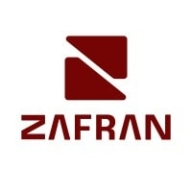


Lacework FortiCNAPP and FortiDevSec are competing products in the cybersecurity market, focusing on application security. FortiDevSec is favored for its comprehensive security coverage, while Lacework FortiCNAPP is notable for its integration and flexibility.
Features: Lacework FortiCNAPP provides automatic compliance assessments, cloud-native application protection, and seamless cloud integration. FortiDevSec offers in-depth vulnerability management, advanced threat detection, and extensive security options.
Ease of Deployment and Customer Service: FortiDevSec features a streamlined deployment model with effective customer support known for quick response times. Lacework FortiCNAPP emphasizes an agile deployment process with strong customer service, focusing on integrating seamlessly into existing environments.
Pricing and ROI: Lacework FortiCNAPP presents a competitive setup cost with strong ROI potential via efficient resource utilization. FortiDevSec requires a higher initial investment but offers a significant ROI due to its advanced security features.



Zafran Security integrates with existing security tools to identify and mitigate vulnerabilities effectively, proving that most critical vulnerabilities are not exploitable, optimizing threat management.
Zafran Security introduces an innovative operating model for managing security threats and vulnerabilities. By leveraging the threat exposure management platform, it pinpoints and prioritizes exploitable vulnerabilities, reducing risk through immediate remediation. This platform enhances your hybrid cloud security by normalizing vulnerability signals and integrating specific IT context data, such as CVE runtime presence and internet asset reachability, into its analysis. No longer reliant on patch windows, Zafran Security allows you to manage risks actively.
What are the key features of Zafran Security?
What benefits can users expect from Zafran Security?
In industries where security is paramount, such as finance and healthcare, Zafran Security provides invaluable protection by ensuring that only exploitable vulnerabilities are addressed. It allows entities to maintain robust security measures while allocating resources efficiently, fitting seamlessly into existing security strategies.
FortiDevSec enhances application security by integrating seamlessly into development pipelines, facilitating early threat detection and mitigation. It supports continuous delivery models and ensures robust application defenses while maintaining efficient development workflows.
By embedding security into DevOps processes, FortiDevSec allows teams to address vulnerabilities during development. It automates security assessments, offering insights that help in reducing risk and improving compliance. Its integration capabilities streamline application security without disrupting developer productivity.
What are the key features of FortiDevSec?Industries implementing FortiDevSec like finance and healthcare benefit from its ability to meet strict regulatory standards while ensuring secure and rapid application deployment. It supports integration into existing workflows, making it a valuable tool for maintaining compliance and protecting sensitive data.
Lacework FortiCNAPP provides robust cloud security, combining vulnerability management and multi-cloud insight with user-friendly controls, machine learning detection, and compliance support.
Lacework FortiCNAPP specializes in cloud security by merging machine learning anomaly detection with agent-based vulnerability management to offer detailed alerts and compliance reports. Its comprehensive approach allows continuous monitoring across AWS and Kubernetes, providing insights from an attacker's perspective. The platform offers automation and seamless Slack integration, facilitating collaborative and efficient cloud security management. Users value its ability to handle multi-cloud environments and scan IAC scripts, configurations, and compute nodes across AWS and GCP.
What are the key features?Organizations across sectors leverage Lacework FortiCNAPP for cloud security, focusing on compliance, security posture, and vulnerability management. It is widely used for monitoring AWS and Kubernetes environments, scanning IAC scripts, configurations, and securing compute nodes. It supports multi-cloud security posture management and log ingestion, enabling companies to maintain strong cloud infrastructures without dedicated security layers.
We monitor all Vulnerability Management reviews to prevent fraudulent reviews and keep review quality high. We do not post reviews by company employees or direct competitors. We validate each review for authenticity via cross-reference with LinkedIn, and personal follow-up with the reviewer when necessary.